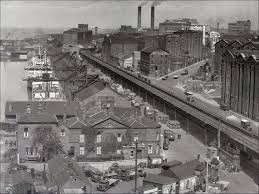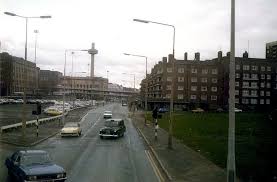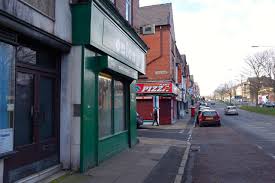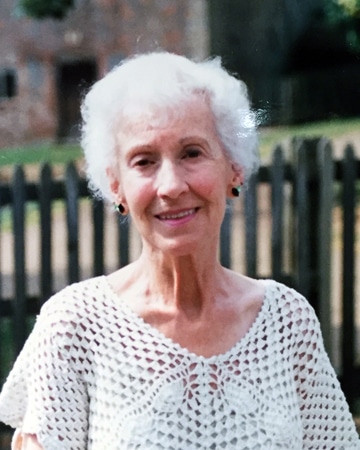About the song
This is a song about a mother’s (Joan Vance) love for her daughter (Pauline Huntridge nee Vance); tragically, the daughter died in March 2003 aged 50. Then at 82-year-old Joan went blind some six months after her daughter’s death in 2003.
Joan’s story is a remarkable one with her early years spent during the war having to contend with nightly bombings, through the austere 50’s, the revitalising 60’s with The Beatles leading the “Mersey Beat” music scene, the decline of the once major industries in the 70’s then on to labour controlled controlled local authorities in the 80’s, a very turbulent and challaging time using all of her resoursefulness to adapt.
Joan lived alone on Merseyside (Bootle) close to the docks and had been in the same house for over 70 years. Originally, she lived there with her parents and then subsequently her husband and young family. Eventually with time, her parents passed away. She continued living there with her husband of over thirty years Bill Vance then he too died at 52, leaving her living alone in the once busy house. She lived there on her own for thirty five years, an independent, strong willed and fiercely determined individual.
Joan had two children, a son and a daughter, both of whom married and moved out of the area. The daughter Pauline moved south to Reading in 1982 with husband Steve and had a family of her own, one son Leigh and one grandson Will.
Visits to Merseyside by the daughter to see her mother were usually every three to six months, plus the special family events such as Christmas, weddings, birthdays, gatherings etc. However, the contact by telephone was often daily but at least every 2/3 days, so they both had detailed knowledge of each other’s feelings, daily lives and developments, a very ordinary but also a very deeply close personal relationship.
Background to the song
Joan grew up in a city that had undergone many changes during her formative years with the affects of the bombing during WWII through the austere 1950’s to the optimistic 1960’s and then the depressed 1970’s and 80’s these together with the socio-economic woes had a real affect on her and particuarly her disposition. Its hard now for us to understand what it was really like however this short film gives an general insight to the Liverpool of that time in the 60’s.
How the song came about
Steve Huntridge explains; As a sighted individual, if I can use that clumsy expression, my association with the blind has always been a neutral one. The outward signs, such as the gentle and devoted guide dogs with their precious responsibility always demonstrated in their every move; the white stick etc. were enough to make you appreciate your own lot but that was about it.
Not until I was touched first hand by Joan’s experiences and her pragmatic approach to coping day to day did it really start to hit home.
Practical aids appear to be fantastic at maintaining daily life but coming to terms mentally and psychologically in dealing with blindness seem to be one of the greatest challenges in this situation.
Joan’s example of how to turn a negative into a positive was the main inspiration for writing the song, her determination in the face of great personal sadness and her ability to adapt and accept has been nothing less than amazing.
After speaking to Joan and hearing her talking about her daughter and the precious times she was re-living in her dreams of being once again with Pauline, something just clicked for me and the song cried out to be expressed, something very new and unexpected for me. Taking the finished result up to Liverpool and seeing the joy it brought Joan, made it, for me, all worthwhile.
Joan had like many ordinary people of that time period had to endure a life of struggle and hardship for the large majority of time with us particuarly during the war years ,which should have been some of the happiest of her life, but sadly left an indelible imprint.
Her legacy though was of a strong stoic individual who managed to turn adversity into her own personal triumph.


Nightly German bombing
Liverpool was the most heavily bombed area of the country, outside London, due to the city having, along with Birkenhead, the largest port on the west coast and being of significant importance to the British war effort.

Destruction and devastation
The government hoped to hide from the Germans just how much damage had been inflicted upon the docks, so reports on the bombing were kept low-key. Around 4,000 people were killed in the Merseyside area during the Blitz content goes here.

The Austere 50's
In Liverpool, massive slum clearance programs started to change the face of the city, television began to infiltrate peoples lives, and the consumer society was born. In the city centre, war-damaged buildings were being repaired and new developments were springing up
Swinging 60's and the Mersey Beat
With a mood of optimism gripping the city spurred on by the music noteably The Beatles and with two successful football teams there was a calm optimism that the worst was finally behind them.

Economic downturn in the 70's
Liverpool suffered badly in the countrywide recession of the 1970s and 1980s, with high unemployment and rioting on the streets

Small green shoots
From the late 1980s however, the city started to bounce back, invigorated by new growth and redevelopment, particularly of the dock areas. Several new museums were opened to celebrate the history and heritage of the city,

Pauline Huntridge nee Vance
4th March 1953 – 23rd March 2003
Joan Vance nee Collings
1922 – 2013

Get in Touch (in confidence)
If you have a story, particuarly about a special mother/daughter relationship, that you would like to share, please drop us a line.
